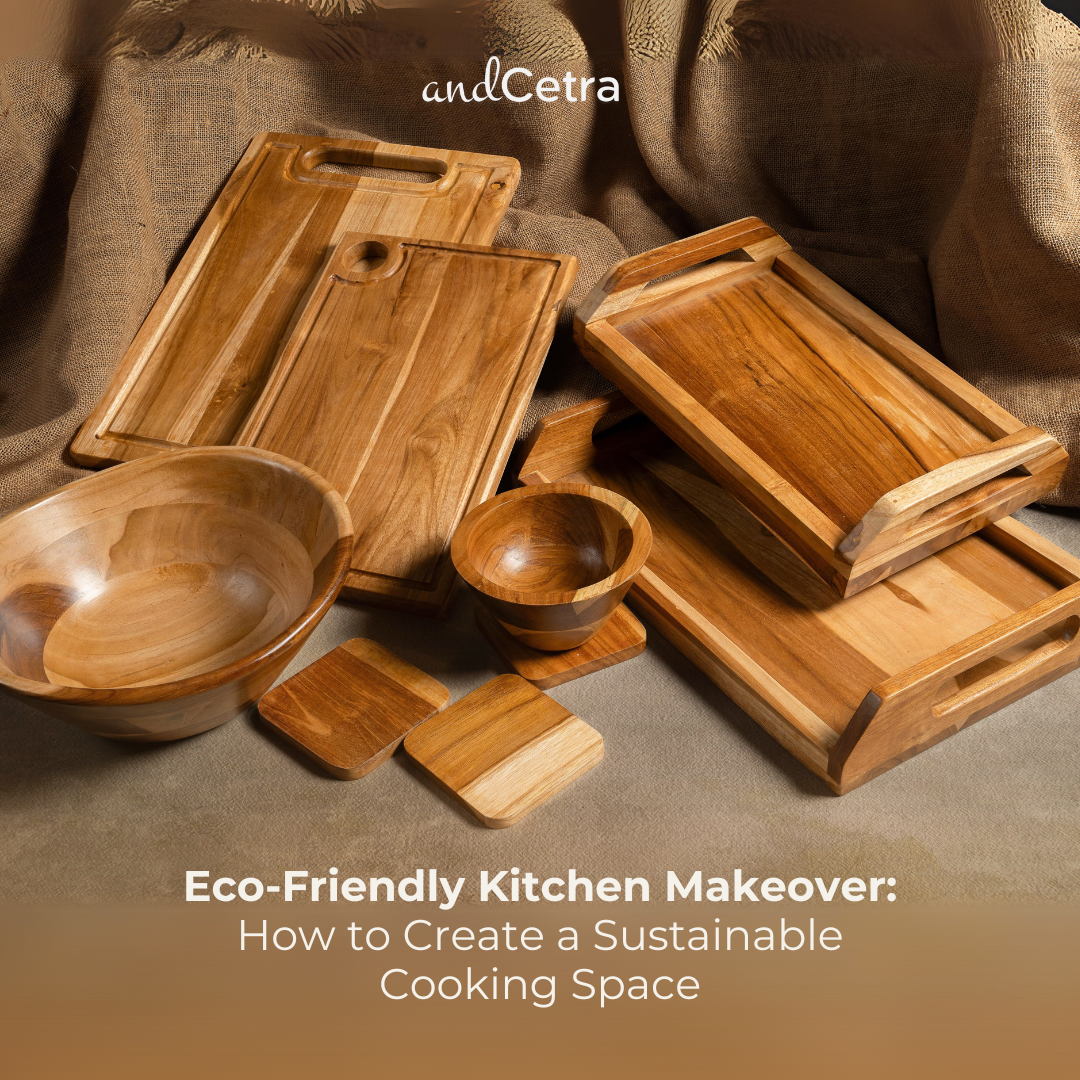
Eco-Friendly Kitchen Makeover: How to Create a Sustainable Cooking Space
Share
Your kitchen is the heart of your home, and it’s the perfect place to start making eco-friendly changes. A sustainable kitchen not only benefits the environment but also enhances your cooking experience by creating a healthier space. At Andcetra, we’re passionate about sustainability, and we believe that even small changes can make a significant impact. Here’s how to transform your kitchen into an eco-friendly haven.
1. Choose Sustainable Materials
Start by selecting eco-friendly materials for your kitchenware. Opt for products made from sustainably sourced wood, bamboo, or recycled materials. At Andcetra, our wooden kitchenware is crafted with care, prioritizing sustainability without compromising on style or quality. By choosing products that are built to last, you reduce waste and contribute to a healthier planet.
2. Minimize Plastic Use
One of the simplest ways to create a sustainable kitchen is to minimize or eliminate plastic items. Replace plastic containers with glass or stainless steel alternatives, and swap plastic utensils for wooden or bamboo options. Not only do these alternatives look beautiful, but they also reduce plastic waste, making your kitchen more eco-friendly.
3. Embrace Energy-Efficient Appliances
Investing in energy-efficient appliances is a great way to reduce your carbon footprint. Look for appliances that have the ENERGY STAR label, which indicates they meet energy efficiency guidelines set by the U.S. Environmental Protection Agency. From refrigerators to dishwashers, these appliances use less energy, helping you save on utility bills while benefiting the environment.
4. Incorporate Fresh Herbs and Vegetables
Start a small herb garden or incorporate potted plants into your kitchen décor. Fresh herbs like basil, mint, and cilantro not only add flavor to your dishes but also reduce the need for store-bought, packaged herbs that contribute to plastic waste. Plus, growing your own herbs is a fun and rewarding way to connect with your food.
5. Practice Composting
Composting is an excellent way to reduce food waste and enrich your garden soil. Set up a compost bin in your kitchen for vegetable scraps, coffee grounds, and other organic waste. This not only keeps waste out of landfills but also creates nutrient-rich compost that can be used in your garden, promoting a sustainable cycle of growth.
Conclusion
Creating an eco-friendly kitchen is all about making mindful choices that align with your values. By choosing sustainable materials, minimizing plastic use, investing in energy-efficient appliances, growing your own herbs, and practicing composting, you can transform your cooking space into a sustainable haven.
At Andcetra, we believe that every small step counts toward a greener future. Embrace these tips, and enjoy a kitchen that’s not only beautiful but also kinder to the planet. Let’s cook with purpose and create a healthier world, one meal at a time!
